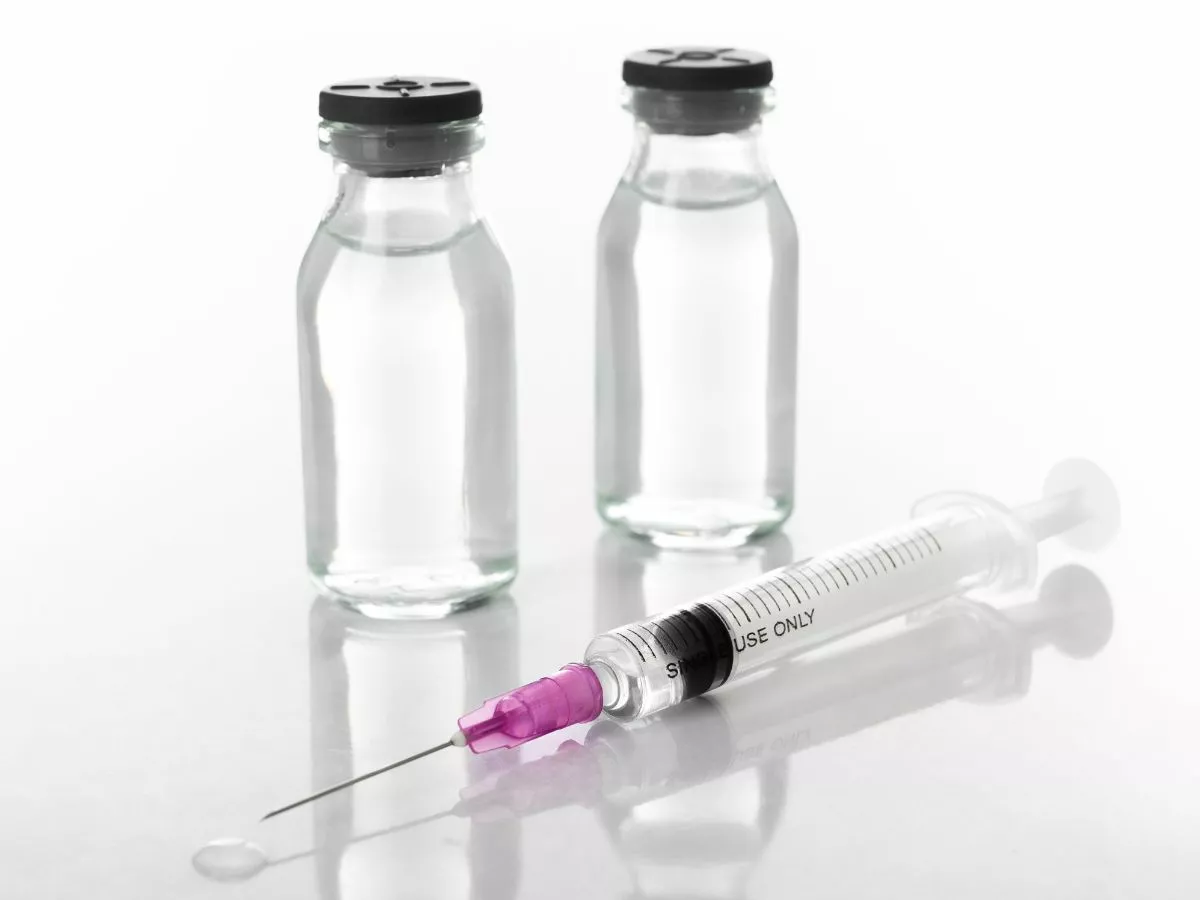Have you noticed changes in your energy levels, mood, or even your physical health lately? For many men over 30, these symptoms could be linked to declining testosterone levels. One in four men in this age group experiences low testosterone, and it’s more common than you might think. But the real question remains—could Testosterone Replacement Therapy (TRT) help improve your quality of life? That’s what we’re here to explore.
This blog will guide you through understanding testosterone’s role in your body, potential signs of low testosterone (low-T), and whether TRT might be the solution you need.
Understanding Testosterone and Its Effects
Testosterone is more than just a hormone; it’s a chemical catalyst for many of your body’s essential functions. It affects everything from energy production and muscle mass to mood and sexual health.
Why Does Testosterone Drop?
It’s natural for testosterone levels to decline gradually as men age, similar to how women experience hormonal changes near menopause. However, some factors can accelerate this drop:
- Medications you may currently be taking.
- Alcohol consumption in excess.
- Chronic health issues like liver or kidney problems, certain cancers, and testicular injuries.
Unfortunately, life can throw us curveballs, and these factors lead to some men experiencing low-T earlier than expected.
Health Impacts of Low Testosterone
When testosterone levels drop too low, your body starts sending signals. These include:
- Sexual health issues, such as low libido or erectile dysfunction.
- Fatigue and lack of energy.
- Mood changes, including depression and irritability.
- Physical changes, like muscle loss, hair thinning, and increased body fat.
- Bone health concerns, such as reduced bone density, which can lead to fractures.
Alone or together, these symptoms can make everyday life more challenging. If several of these resonate with your experiences, it might be time to consider your options.
How TRT Could Make a Positive Difference
For men with low-T, Testosterone Replacement Therapy can be life-changing. By restoring testosterone levels to a healthy range, TRT may help:
- Increase energy and motivation.
- Improve mood and reduce feelings of depression or irritability.
- Boost libido and address sexual health issues.
- Enhance muscle mass and reduce body fat.
- Strengthen bones, improving overall physical health.
At its core, TRT isn’t just about feeling better; it’s about reclaiming vitality and confidence.
Who Can Benefit from TRT?
If you’ve been experiencing symptoms of low-T and find it’s interfering with your daily life, you might be a strong candidate for TRT. However, it’s important to consult a healthcare professional to rule out other potential causes and confirm whether TRT is appropriate for you.
The TRT Process – What to Expect
Starting TRT begins with understanding your body’s needs through a simple blood test. This test measures your testosterone levels to determine if you have low-T. If you’re a candidate for TRT, a physician will recommend a treatment plan tailored to your needs.
Treatment Options
Treatment methods generally include:
- Topical gels or creams – These are applied to the skin and absorbed directly into the bloodstream.
- Injections – Administered at home or in a clinical setting, these offer precise dosage control.
- Pellets – Inserted beneath the skin by a doctor and gradually release testosterone over time.
- Oral pills – While available, these are less commonly recommended due to the potential risk of liver damage.
Whichever method you choose, the goal remains the same—to restore balance and improve your quality of life.
Ongoing Monitoring
TRT isn’t a “set it and forget it” treatment. Regular blood work is required:
- Every three months during the first year.
- Every six months thereafter.
This ensures your body is absorbing the right amount of testosterone and allows for any necessary dosage adjustments.
Potential Side Effects of TRT
Like any medical treatment, TRT comes with potential side effects. While not everyone will experience them, it’s important to be aware:
- Acne or oily skin.
- Lower sperm count.
- Increased risk of blood clots.
- Enlarged breast tissue.
- Shrinking of the testicles.
Your doctor will discuss these risks with you based on your overall health, helping you make the most informed decision possible.
Why Choose Science&Humans for TRT?
Navigating TRT options can feel overwhelming, but that’s where Science&Humans comes in. From the initial blood test to ongoing care, our team is here to guide you every step of the way.
What We Offer:
- Unlimited access to medical and pharmacy teams for personalized care and answers to your questions.
- Customized treatment plans tailored to your unique needs.
- A commitment to empowering you to feel your best, with life-changing results.
We’re here to make TRT accessible, effective, and safe—all while ensuring you have the support you need.
 |
||
Get TRT at 1 CADTake our online test and check if you are eligible for our hormone therapy. This allows our medical team to analyse your blood test and confirm if you’ve qualified for treatment. |
Take the First Step Towards Better Health
If you’ve identified with the symptoms of low testosterone and are ready to explore your options, the next step is simple. Take our online eligibility test to determine whether TRT might be right for you. From there, our medical team will perform a professional assessment and design a plan that meets your needs.
You don’t have to endure the symptoms of low testosterone any longer. Regain your energy, confidence, and vitality with the help of TRT through Science&Humans.
FAQs
What is Testosterone Replacement Therapy (TRT)?
Testosterone Replacement Therapy is a medical treatment designed to address low testosterone levels in men. By restoring testosterone to optimal levels, TRT can help improve energy, mood, libido, muscle mass, and overall well-being. Treatment options include topical gels, injections, pellets, or oral medication
What are the symptoms of low testosterone?
Low testosterone, or low-T, can present with a variety of symptoms, including:
- Low energy or chronic fatigue
- Reduced sex drive or erectile dysfunction
- Mood changes, such as irritability or depression
- Loss of muscle mass and increased body fat
- Thinning hair and decreased bone density
If you experience several of these symptoms, it may be time to consult a healthcare professional.
Who is a candidate for TRT?
TRT is suitable for men who have been diagnosed with low testosterone levels through a simple blood test and are experiencing related symptoms. It's particularly common among men over 30, as natural testosterone levels decline with age. Always speak with a healthcare provider to see if TRT is right for you.
What benefits can I expect from TRT?
TRT can significantly improve various aspects of your health, including:
- Increased energy and motivation
- Enhanced mood and mental clarity
- Improved sexual health and libido
- Higher muscle mass and reduced fat
- Stronger bones and overall vitality
For many men, TRT is about reclaiming confidence and an improved quality of life.
Are there any risks or side effects to TRT?
Like any medical treatment, TRT comes with potential side effects, although they vary by individual. Some may include:
- Acne or oily skin
- Reduced sperm count
- The risk of blood clots
- Breast tissue enlargement
- Shrinkage of the testicles
How can I monitor my progress with TRT?
TRT requires regular follow-ups to ensure effectiveness and safety. Blood tests are typically conducted:
- Every three months during the first year of treatment
- Every six months thereafter
This monitoring ensures your testosterone levels are in the optimal range and allows for adjustments if necessary.
Is TRT covered by health insurance in Canada?
Coverage for TRT may vary depending on your insurance provider and the specific treatment prescribed. It’s best to consult with your insurance company to understand what is covered.
Where can I learn more about TRT?
Visit Science&Humans for detailed guides on TRT and its benefits. Additionally, take our online eligibility test to see if TRT may be the right solution for you.



